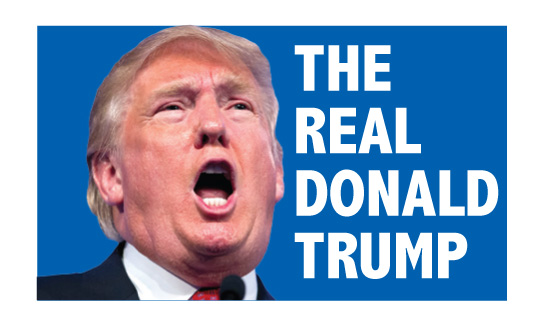Former Alaska Gov. Sarah Palin endorsed Donald Trump last week on behalf of what she called “the rest of us — right-winging, bitter-clinging, proud clingers of our guns, our God, and our religion, and our Constitution.”

This was a garbled reference to what candidate Barack Obama once said sneeringly behind closed doors to disparage conservatives to wealthy donors. But is it appropriate to describe the Trump bandwagon as a home for such voters?
Conservative voters are known for skepticism about Republican rhetoric. They are especially skeptical when Republicans come on the scene promising to hew to conservative principle, because they have seen so many tiptoe away from those promises once they’ve been safely elected.
So why exactly would conservatives credulously accept Trump’s word that has spun 180 degrees on so many issues dear to conservatives? This is especially true on the issues to which Palin alluded.
The “gun-clingers” are traditionally among the most skeptical voters, justifiably concerned that paternalistic politicians hope to erode their rights if not to confiscate their firearms. They should be especially wary, then, of a politician who wrote of his enthusiastic support for President Clinton’s assault weapons ban as late as 2000.
Trump praised that ban in his book and criticized the National Rifle Association for its intransigence in opposing it. By the time Trump wrote these things, it was abundantly clear that the ban had been an utter failure at preventing gun violence. Its primary effect had been needlessly to hassle law-abiding gun owners.
Pro-life voters tend to be skeptical as well of Republican promises, too, after decades of bad Supreme Court appointments by GOP presidents, and the consequent blocking of democratic limits on abortion. Pro-lifers are not unwilling to accept converts even from among abortionists, but they are hesitant in primary elections to back candidates who have converted on their issue just in time to ask for their vote.
This is precisely what Trump has done. In a recent op-ed for the Washington Examiner, he tried to explain how he had gone from opposing even a ban on partial birth abortion as recently as 2000 to a pro-life position today. “I had a significant personal experience that brought the precious gift of life into perspective for me,” he wrote. He had described that experience in vague terms in one of the GOP presidential debates.
“[F]riends of mine years ago were going to have a child, and it was going to be aborted,” he said. “And it wasn’t aborted. And that child today is a total superstar, a great, great child. And I saw that. And I saw other instances. And I am very, very proud to say that I am pro-life.”
Later, a publication asked Trump if he would still have become pro-life if the child had grown up to be “a loser?” Trump replied that it was “an interesting question,” and added, “Probably not, but I’ve never thought of it.” This does not especially inspire confidence about the value he places on human life.
As recently as August, Trump defended government subsidies for Planned Parenthood. He said the organization, which performs 30-40 percent of all abortions in America, does many things and that abortion is only “a small part” of what it does.
Meanwhile, Trump has dodged questions about what sort of Supreme Court nominees he’d choose — a question on which pro-lifers, like other believers in self-government, have rightly demanded orthodoxy in the past.
The central question for conservatives, on these and other issues, is whether Trump truly experienced radical conversions on issues they care about, or whether he has just learned to say the right things when he needs conservatives’ votes. Even on his signature issue of immigration, Trump faulted Mitt Romney for being too tough as recently as 2012. In 2013, he told a group of immigration activists that he supported giving DREAMers a path to citizenship, and was shocked that they didn’t have one already. Only now, running for president, has he sung a different tune.
Conservative voters are not known for blind credulity, and that partly explains why the Republican Party establishment has lost control of the nomination process. That is not a bad thing. But it does highlight the question of why those same skeptical voters accept Trump’s current claims at face value.
